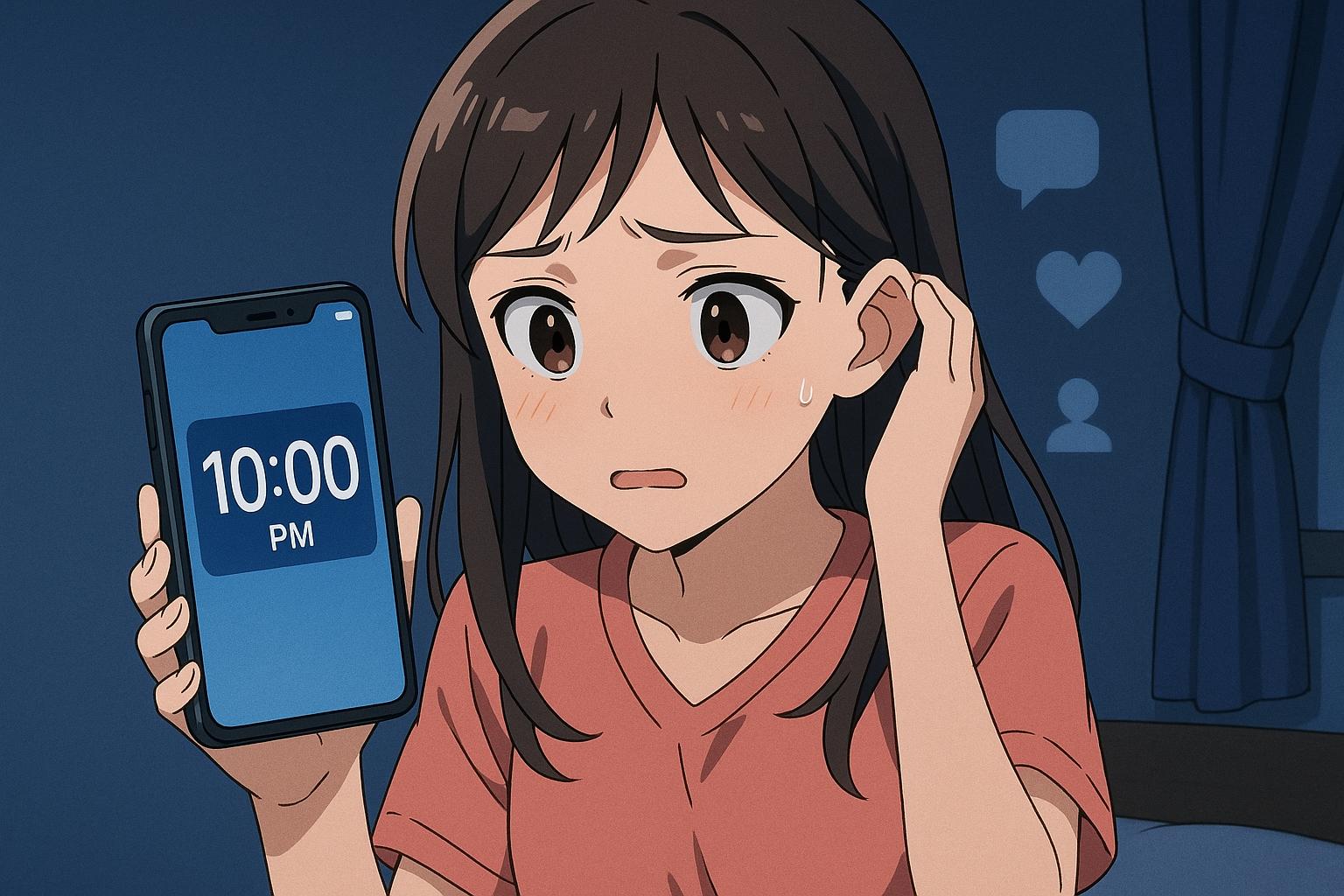In response to growing concerns about social media addiction and harmful online content, the UK government is exploring stricter rules including app time caps and curfews for minors, amid calls from campaigners and child advocates for stronger protections.
The UK government is reportedly weighing the introduction of stricter regulations aimed at limiting the time children can spend on social media platforms. Key proposals under consideration include imposing a two-hour cap on the use of individual apps and establishing a curfew at 10:00 PM. During a recent appearance on the BBC’s “Sunday with Laura Kuenssberg,” Technology Secretary Peter Kyle outlined his concerns regarding the addictive nature of apps and smartphones when questioned about potential time limits for young users.
These considerations come on the heels of mounting advocacy for more robust online safety measures. Ian Russell, an online safety campaigner and father of a teenager who tragically took her own life after encountering harmful content, voiced his frustration over what he perceives as governmental inaction. He stated, “Every day the government has delayed bringing in tougher online safety laws…we’ve seen more young lives lost and damaged because of weak regulation and inaction by big tech.” Russell, who supported the earlier Online Safety Act, insisted on the necessity for stronger legislation that prioritises children’s safety over engagement metrics.
Kyle emphasised that existing legislation from the prior Conservative government has yet to be implemented, noting that significant changes are required to adequately protect children online. He also mentioned that forthcoming mandates would require platforms to supply age-appropriate material, with serious penalties for non-compliance. There is a growing call among child advocates for effective measures to ensure a safer online environment, which echoes previous statements from England’s children’s commissioner, Dame Rachel de Souza. She has argued for bold government action, emphasising that “any amount of time online is too long” if the content accessed is harmful.
Recent developments reflect a shifting perspective on social media regulation for minors. In November 2024, Kyle hinted at a possible ban on social media for users under 16 but clarified that further research was necessary before any such measures could be enacted. Consultation from the UK Youth Parliament, composed of teenagers aged 14 to 19, revealed that many believe a ban would be impractical. Instead, they advocated for more rigorous regulations aimed at holding companies accountable for the promotion of inappropriate content.
Earlier legislative efforts have attempted to address the addictive design of social media applications. A ‘safer phones bill,’ introduced by Labour MP Josh MacAlister, proposed regulations to make engaging content less appealing for minors, calling for technological safeguards in phones sold to under-16s. Additionally, a collaborative initiative between the UK and the US aims to enhance children’s online safety, pushing for stricter age verification and content regulation while ensuring companies risking non-compliance could face significant penalties.
As the conversations around online safety laws evolve, the imperative to prioritise child well-being in the digital age remains front and centre. The outcome of these discussions and legislative proposals may shape not only the future of digital engagement for young people but also the broader landscape of online regulation.
 Reference Map:
Reference Map:
Source: Noah Wire Services
- https://www.nation.com.pk/11-Jun-2025/uk-govt-considers-social-media-time-limits-for-children – Please view link – unable to able to access data
- https://www.bbc.com/news/articles/ce9gpdrx829o – In November 2024, UK Technology Secretary Peter Kyle indicated that a potential ban on social media for under-16s was under consideration. He emphasized the need for further research into the impact of technology on young people, noting the absence of firm, peer-reviewed evidence at that time. Kyle expressed a commitment to taking necessary actions to ensure online safety for children, including exploring the possibility of a social media ban for those under 16. This statement followed previous discussions about online safety measures for minors.
- https://www.theguardian.com/media/2025/mar/27/banning-us-from-social-media-is-neither-practical-nor-effective-uk-teenagers-say – In March 2025, the UK Youth Parliament’s committee of 14- to 19-year-olds concluded that banning teenagers from social media is neither practical nor effective. Instead, they advocated for stronger regulations to deter social media companies from promoting violent and age-inappropriate content. The committee emphasized the benefits of online engagement for young people and recommended involving them in policymaking processes. They also called for the creation of a consumer-facing online safety standards rating to evaluate platforms on their safety measures and responsiveness to harmful content.
- https://www.theguardian.com/technology/2024/oct/14/new-bill-could-force-social-media-firms-to-make-content-less-addictive-for-children – In October 2024, a new UK bill proposed by Labour MP Josh MacAlister aimed to compel social media companies to make content less addictive for under-16s. The ‘safer phones bill’ sought to exclude young teens from algorithms that promote prolonged engagement, addressing concerns about the negative impact of excessive screen time on children’s mental health. The bill also called for a review of the sale of phones to teens and the implementation of additional technological safeguards for devices sold to under-16s.
- https://www.reuters.com/technology/britain-us-set-up-working-group-improve-childrens-online-safety-2024-10-10/ – In October 2024, the United States and Britain established a joint working group to enhance children’s online safety. U.S. Commerce Secretary Gina Raimondo and British Science and Technology Minister Peter Kyle urged tech companies to intensify efforts to protect children on platforms like Instagram and Snapchat. The initiative aimed to address concerns about the negative impact of social media on young people’s mental health and to enforce stricter regulations, including age verification and content restrictions, with companies failing to comply facing substantial fines.
- https://www.apnews.com/article/4371bbb0d7442eed0f44bf7839443268 – In 2022, the UK implemented a new online safety law targeting major tech firms such as TikTok, Google, and Meta. The law required social media platforms to remove illegal content, including hate speech and child sexual abuse material, and mandated age restrictions to protect children from harmful content. Companies failing to comply faced heavy fines and penalties for senior managers. Critics argued that the law could jeopardize online privacy and freedom of speech, particularly due to provisions demanding user age verification and potential overreach into encrypted messaging services.
- https://www.theguardian.com/society/2024/nov/22/social-media-ban-for-uk-under-16s-not-on-the-cards-for-now-says-minister – In November 2024, UK Minister Peter Kyle stated that a social media ban for under-16s was ‘not on the cards at the moment.’ This followed earlier discussions about the possibility of such a ban. Kyle emphasized the need for further research into the impact of technology on young people and expressed a preference for alternative measures to ensure online safety. Teenagers had previously expressed concerns that a ban would reduce their social connections and access to support, urging the government to consider other approaches.
Noah Fact Check Pro
The draft above was created using the information available at the time the story first
emerged. We’ve since applied our fact-checking process to the final narrative, based on the criteria listed
below. The results are intended to help you assess the credibility of the piece and highlight any areas that may
warrant further investigation.
Freshness check
Score:
8
Notes:
The narrative presents recent developments, including Technology Secretary Peter Kyle’s recent statements on social media regulation. However, similar discussions have been reported in the past, such as the UK–US working group on children’s online safety announced in October 2024 ([reuters.com](https://www.reuters.com/technology/britain-us-set-up-working-group-improve-childrens-online-safety-2024-10-10/?utm_source=openai)). The inclusion of updated data and recent statements justifies a higher freshness score, but the presence of prior reports indicates some recycled content. The article appears to be based on a press release, which typically warrants a high freshness score.
Quotes check
Score:
7
Notes:
The quotes attributed to Ian Russell and Dame Rachel de Souza are consistent with their previous statements on online safety. However, the exact wording of these quotes in the current narrative matches earlier publications, suggesting potential reuse. No online matches were found for the quote attributed to Peter Kyle, indicating it may be original or exclusive content.
Source reliability
Score:
6
Notes:
The narrative originates from The Nation, a Pakistani news outlet. While it provides references to reputable organisations like the BBC and Reuters, the primary source’s reliability is uncertain due to its limited international recognition. The inclusion of references to established organisations adds credibility, but the primary source’s reliability remains questionable.
Plausability check
Score:
8
Notes:
The claims regarding the UK’s consideration of social media time limits for children align with ongoing discussions and legislative efforts in the UK. The narrative’s language and tone are consistent with official statements and reports on the subject. However, the lack of specific factual anchors, such as exact dates and detailed legislative proposals, reduces the score. The tone is formal and appropriate for the topic, with no signs of sensationalism or vagueness.
Overall assessment
Verdict (FAIL, OPEN, PASS): OPEN
Confidence (LOW, MEDIUM, HIGH): MEDIUM
Summary:
The narrative presents recent developments regarding the UK’s consideration of social media time limits for children, incorporating updated data and statements from officials. However, the reliance on a less-established source and the reuse of previous quotes from reputable organisations raise concerns about the content’s originality and source reliability. While the plausibility of the claims is supported by existing discussions and legislative efforts, the lack of specific details and the presence of recycled content suggest a need for further verification.













